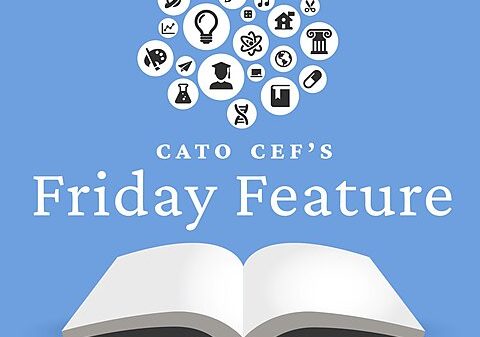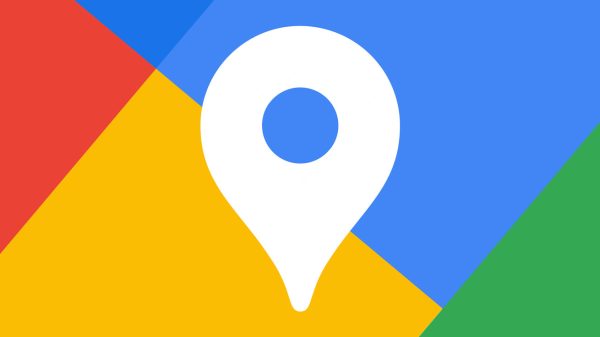Entrepreneurship is hard. Education entrepreneurship can be even harder, in part because education is highly regulated and in part because you’re trying to attract families who have a “free” option in the public school system.
Microschool founder April Jackson has experienced these challenges firsthand. As a military wife, April was a public school teacher and academic coach in several different states. “No matter where I went, it was consistent. I almost always taught in schools with predominantly black students. And the prevailing issue was that they could not read or they were reading well below grade level. And I was seeing where they were not doing anything to address actual reading,” she recalls. Since she was a secondary teacher, she was trained to teach analysis of literature, not how to read. But she knew someone needed to be teaching them the fundamentals of reading.
“They kept telling me to teach to the standard, and I’m like, ‘This child is on the second-grade level in ninth grade. I don’t know what I’m supposed to be doing with this.’ So overall, it just became frustration with seeing children that were well below grade level being pushed through,” April says. But then she felt like her hands were tied, and she had to do the same thing. She made student growth her goal because she didn’t feel like she could punish them for being so far behind when they had been pushed along up to that point.

Her first breaking point came when an assistant superintendent was observing her classroom. “It was a gifted class, but some of the kids were reading below grade level, some were above grade level, and some were on grade level. So I had differentiated instruction,” she explains. “They had a curriculum map that they wanted me to follow, and I couldn’t do that. I heard the assistant superintendent say, ‘It looks like this teacher has been given free rein to be creative in her classroom. And that’s a problem.’” He was more upset by April’s creative teaching methods than about students getting to ninth grade without being able to read.
April left teaching for six months but missed it and returned as an instructional coach. She approached the principal about making some changes to the curriculum, saying, “’Our school is like 99.9 percent black. But when I look at the curriculum, I don’t see black people, black writers, black characters. Can I add some to the curriculum?’” She says he rejected her request, “He said, ‘No, our teachers struggle already with following the curriculum as is. We’re not adding anything.’” But April thought the benefits of culturally relevant learning were more important than the teachers following the curriculum. It was the final straw.
Like many “edupreneurs,” April’s plans have evolved with changing circumstances. First, she created the PASS Network—PASS stands for Parental Access to Student Support. “It was supposed to be a bridge between the school and the parent because I found there was a huge disconnect there. Parents were being pushed out of the academic space. You would think they would want parent engagement, but I didn’t see that. So I wanted to create an organization that worked to bridge that gap,” she says.
Within a year, she felt called to create PASS Pod, a microschool that opened in August 2021. “I didn’t call it a microschool at the time. I called it a tiny school. I called it a homeschool learning community. I tried a lot of things until we got to the place where everybody was using the language microschool,” she explains.
April has had her share of ups and downs and then some. She started with eight students aged 9–13, meeting three days a week. The following year only one student returned, but she added three more. She thinks the drop was because several families had come from an African-centered microschool and PASS is African-American-centered, and they preferred the other program. Whatever the reason, she was in trouble. “I wasn’t making enough money, so I moved all the children to the night,” she says. “I talked with their parents, and I said, ‘Look, I’ve got to go back to public education because I can’t feed myself like this.’ So my second year, the first semester I did only the microschool, and then the second semester I did the microschool three nights a week and I did public school as a teacher five days a week.”
She was exhausted, but she didn’t quit. She knew if she let it go, she’d never go back. Instead, she branched out. April thought, “I’ve got to create a vehicle to get my name out there. Nobody’s going to see my one little microschool, but if I create a village, they’ll see the village. And I need some community to do this work.” So she worked with other microschool leaders to create Black Homeschoolers ATL, which became Black Microschools ATL.
April’s efforts to raise awareness and build a community worked. She opened with ten students the following year and sixteen this year. She hired one teacher this year and has another one lined up for next year. April will be focusing on marketing the curriculum she’s designed to build another revenue stream. In the meantime, she expects next year to be another hard financial period.
PASS Pod now meets five days a week. They have a morning roundup meeting where they share what’s happening, then an English Language Arts block and a math block. April says it’s very individualized. She tests the students at the beginning of the year to see where they are on a variety of skills and then creates an individualized learning plan for each child. So she may have 10 students who need to work on fractions, for example, but each might have different skills they need to master before getting there. “So it’s every child, every day, getting what they need,” she says. After a long break for lunch and recess, they come back in for science, social studies, and electives, which include Spanish, drama, swimming, robotics, and debate.

PASS Pod has been approved as a vendor in the new Georgia Promise Scholarship, an education savings account. In theory, this means families can use their accounts to pay the PASS Pod tuition. Unfortunately, students must be enrolled for two consecutive semesters in one of the lowest-performing public schools in the state to receive a scholarship. April says that for most of her families, “the risk that they’d take of going back—the risk to their child’s safety—is not worth it to them.”
While the ESA could help her expand to serve more children, that brings new challenges because it’s hard to find the sweet spot of how many students to enroll and teachers to hire and not lose money. “These are things in business that I just never considered until now, and now I’m teaching other people classes on it,” she adds.
If she could go back in time, April isn’t sure she would do it again. She loves teaching, but she cleared out her retirement to start PASS Pod and is worried about her future. However, she would encourage someone younger who has more time to “fail and try and fail and try again” to go for it. “Actually, my niece is coming in—she’s about 25. She’s coming in next year as one of my teachers in my elementary, and this is her school after this. I want her to take over the school, and I want to go and build my retirement back up,” says April.
April’s situation illustrates the need for universal school choice programs that let funding follow children to a variety of educational options. Atlanta Public Schools, where April used to teach, spend around $25,000 per student overall. Meanwhile, the Georgia Promise Scholarship is worth $6,500—just one-fourth of what Atlanta schools are spending. If all students could access that fraction of funding, options like PASS Pod would be more accessible. It would still be uneven, but it would be a step forward. The way to ensure children aren’t trapped in schools that don’t work for them is to ensure the funding meant to educate them isn’t trapped in those schools.



























